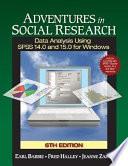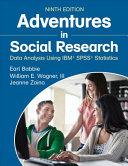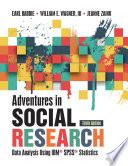
Qualitative Research: Data Collection & Data Analysis Techniques (UUM Press)
Qualitative Research: Data Collection & Data Analysis Techniques is especially written for anyone who is interested in doing or learning more about qualitative research methods. The reader-friendly organisation and writing style of the book makes it accessible to everyone-academics,professionals, undergraduates, postgraduates, researchers, and even for those who are just beginning to explore the field of qualitative research. Each chapter provides a clear, contextualized and comprehensive coverage of the main qualitative research methods (interviews, focus groups, observations, diary studies, archival document, and content analysis) and will thus equip readers with a thorough understanding of the steps and skills to undertake qualitative research effectively. Bringing together qualitative research scholars from three different tertiary institutions in the country – Associate Prof Dr. Puvensvary Muthiah, Dr. Radziah Abdul Rahim, Puan Noor Hashima Abd Aziz, and Noor Fadhilah Mat Nayan, from Universiti Utara Malaysia (UUM), Assoc. Prof. Dr. Mastura Badzis from Universiti Pendidikan Sultan Idris (UPSI) and R. Sivabala Naidu from Darulaman Teacher Training Institute, this book addresses some of the most important questions facing students and researchers in qualitative research
- ISBN 13 : 9833827594
- ISBN 10 : 9789833827596
- Judul : Qualitative Research: Data Collection & Data Analysis Techniques (UUM Press)
- Pengarang : Radziah Abdul Rahim, R. Sivabala Naidu, Mastura Badzis, Noor Fadhilah Mat Nayan, Noor Hashima Abd Aziz, R. Sivabala Naidu, Mastura Badzis, Noor Fadhilah Mat Nayan, Noor Hashima Abd Aziz,
- Kategori : Mathematics
- Penerbit : UUM Press
- Bahasa : en
- Tahun : 2008
- Halaman : 127
- Google Book : https://play.google.com/store/books/details?id=EUirpdneUKsC&source=gbs_api
-
Ketersediaan :
008019 Tersedia di Library of UI BBC
Dr. Mastura Badzis from Universiti Pendidikan Sultan Idris (UPSI) and R. Sivabala Naidu from Darulaman Teacher Training Institute, this book addresses some of the most important questions facing students and researchers in qualitative ...









